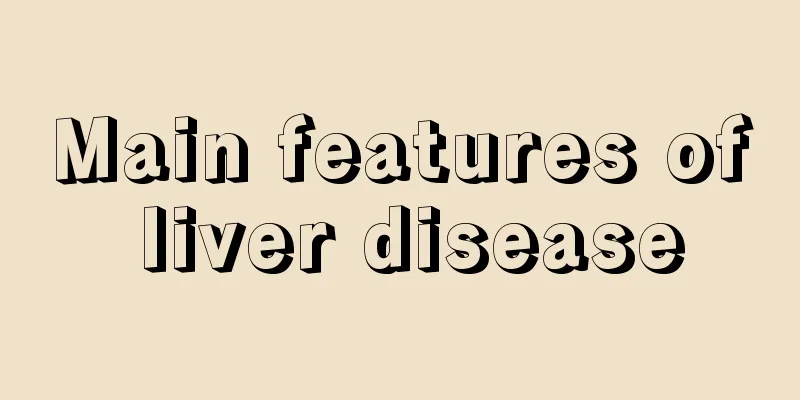What causes toothache

|
Toothache is a common symptom in daily life. Toothache is a relatively deep pain that often makes patients suffer, leading to loss of appetite and restlessness. There are many causes of toothache, and most of them are caused by dental diseases, such as caries, pulpitis, root neuralgia, etc. When tooth decay occurs, the root nerves are easily stimulated by daily diet, which can cause more severe pain. In addition, oral ulcers often cause bacteria to grow, causing patients to have symptoms such as pulpitis and gingivitis, which can also easily cause symptoms of toothache. When toothache occurs, it must be treated in time. There are 6 reasons why toothache occurs 1. Tooth decay Dental caries is a progressive lesion of the hard tissue of teeth caused by the combined effects of multiple factors in the oral cavity. It is characterized by demineralization of inorganic matter and decomposition of organic matter. As the disease progresses, it evolves from color change to the formation of substantial lesions. Caries is a bacterial disease, so it can develop into pulpitis and apical periodontitis, and even cause inflammation of the alveolar bone and jaw bone. Secondary infection of dental caries can form lesions, causing or aggravating other systemic diseases such as arthritis, periostitis, chronic kidney disease and various eye diseases. Dental caries should be prevented through health care. 2. Pulpitis Cause: Mostly developed from tooth decay. Because the dental pulp is surrounded by hard tissue, after inflammation, the dental pulp becomes congested and exudates, the pressure increases significantly, and there is nowhere to spread. As a result, the affected tooth experiences waves of severe and unbearable pain, which is more severe when lying flat at night, often leading to sleepless nights. Eating hot or cold foods can make the pain worse. The pain of pulpitis often radiates to other parts of the body. Sometimes the patient cannot point out which tooth hurts, and the doctor needs to use various means to accurately locate it. 3. Dentin hypersensitivity Cause: Also known as "falling teeth". It is mostly caused by incorrect brushing methods and long-term use of toothbrushes with flat bristles, which lead to excessive tooth wear or caries (cavities). The hard outer layer of the teeth enamel is destroyed, and the sensitive inner layer of dentin is exposed. When rinsing the mouth with cold water or eating cold, hot, sour, sweet and other foods, the dental pulp nerves will be stimulated and produce an uncomfortable sore feeling. Over time, the dental pulp will become congested and then develop into pulpitis, pulp necrosis, apical periodontitis and other diseases, causing great pain to the patient. 4. Apical periapical inflammation Cause: If pulpitis is not treated in time, it will continue to develop and spread to the tissues around the root tip, where more serious inflammation may occur. At first, there is a feeling of swelling and stretching in the teeth, which gradually develops to the point where one is afraid to touch them and the pain continues to throb. Sometimes the gums and face near the teeth will swell and pus will come out. 5. Periodontitis Cause: Inflammation of periodontal tissue, characterized by frequent bleeding gums, repeated swelling and pain, pus discharge, fishy taste, and the presence of dirt and calculus on the tooth surface. In the late stage of periodontitis, the alveolar bone is extensively absorbed, resulting in loose teeth and weak chewing, making it impossible for patients to eat normally. Periodontitis is the main cause of tooth loss. Teeth with periodontitis can also become foci of chronic infection, sometimes leading to the occurrence of systemic diseases such as endocarditis, rheumatic fever, and nephritis. 6. Pericoronitis of wisdom teeth Cause: Inflammation of the surrounding soft tissue when the last large tooth in the mandible (third molar, commonly known as wisdom tooth) is obstructed during its eruption. When the disease first occurs, only local swelling and pain are felt in the mandibular posterior teeth, and one is afraid to chew. In severe cases, the pain is severe and may radiate to the ear and temporal area, and may even cause difficulty in opening the mouth and swallowing, accompanied by systemic symptoms such as fever, weakness, and loss of appetite. |
<<: What causes leg hair to be too long
>>: Viral gastroenteritis is no small matter, timely treatment is crucial!
Recommend
What to do if your neck sweats and itches
Sweating and itching on the neck may be caused by...
We can't ignore the common symptoms of brain cancer
Many patients do not know they have brain cancer ...
How to squeeze out pimples?
Acne is a relatively common skin disease. Most pe...
How to preserve facial mask in summer
Many times, because of the low price, people ofte...
Why did a lot of pimples appear on my face overnight?
Acne is something that everyone hates. It mainly ...
What is lead and mercury
Both lead and mercury are chemical agents that ar...
What is the most common cause of subarachnoid hemorrhage?
Subarachnoid hemorrhage is mostly caused by conge...
13 ways to eat Yuanxiao, the most healthy way. The meaning of Yuanxiao
Yuanxiao means reunion. Some people like to eat i...
5 hazards of lung cancer to human health
Lung cancer is the most common malignant tumor of...
Is it good to suck blackheads frequently?
Improper skin care can easily lead to blackheads ...
6 symptoms of bladder cancer in women
Early symptoms of bladder cancer in women include...
Causes and symptoms of subacute thyroiditis
Subacute thyroiditis is quite harmful to the body...
How to remove frostbite scars more effectively
In winter, many people are affected by frostbite....
Is tussah silk harmful? What is the difference between it and mulberry silk?
Tussah is one of the commonly used raw materials ...
Tongue pain in life should alert you to the arrival of tongue cancer
Some people will feel inexplicable tongue pain, a...









